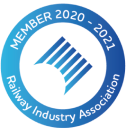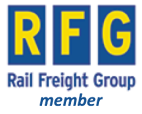Review of the C3000 DMU Project
Northern Ireland Transport Holding Company
Extensive review of C3000 diesel multiple units
Overview
The original fleet of 23 3-car C3000 Diesel Multiple Units (DMUs) operated by Northern Ireland Railways (NIR) was purchased from Construcciones y Auxiliar De Ferrocarriles (CAF) of Spain and introduced to passenger service in 2005.
As well as the Manufacture and Supply Agreement (MSA) for the supply of the trains a 15 year maintenance support contract was awarded to CAF under a Maintenance Support and Collaboration Agreement (MSCA) for the delivery of labour, materials and technical assistance in accordance with a performance regime. Although performing well against NIR’s business monitors the fleet was not meeting the contract reliability targets and the NITHCo[1] Board wished to carry out an independent high-level commercial and technical review of the fleet and of key aspects of the project.
1] Northern Ireland Transport Holding Company, of which NIR is a wholly owned subsidiary.
- Contractual regime review
- Visiting and viewing maintenance arrangements
- Meetings with key personnel
- Conclusion and recommendation report

Our client's challenge
The Class 3000 was performing well against NIR’s business monitors and in comparison with other new designs of DMU at the same stage in their initial development and the new fleet was contributing to high service reliability and punctuality.
However the fleet was not meeting the contract reliability targets and although reliability was improving the incidence of technical issues was having a detrimental impact upon the timetable service. The fleet was also failing to achieve the contract availability target, mainly due to technical issues and to CAF requiring units out of service to carry out reliability improving modifications. The technical issues were being addressed by CAF on an ongoing basis with reasonable success but there were concerns that CAF was not developing and implementing solutions rapidly enough, particularly where the technical solutions required the involvement of CAF’s subcontractors, whom it was felt that CAF had failed to bring to respond fully and effectively.
In compensation for failure to achieve the contract performance targets CAF had been paying penalties to NIR at the maximum level under the contract and the Board was concerned that there may be risks arising from allowing the contract to continue in its current form until the end of the contract period.
The Board wished to subject the contractual documentation, acceptance processes, fleet performance and subsequent technical management activity of its subsidiary NIR to an independent technical review in order to validate NITHCo’s expectations of performance improvement and to identify any further steps available to secure solutions to the technical issues.
Our response
IPEX deployed a small team with comprehensive experience and knowledge of the train service delivery, support and operation domain coupled with deep experience of developing, negotiating, delivering and operating train manufacturing, supply and maintenance support contracts.
IPEX quickly reviewed the contractual regime and the practical fleet operation, visiting and viewing the maintenance and in-service arrangements and meeting with key members of the NIR Board and the CAF service team in order to secure extensive insight into the workings and the performance of the fleet and of the deployment and support aspects of the project. IPEX assessed the contractual requirements and their application by the project stakeholders with reference to available benchmarks for comparable fleet performance and contractual metrics, and delivered conclusions and recommendations in a report for NITHCo, which report gained endorsement by the NIR team.




